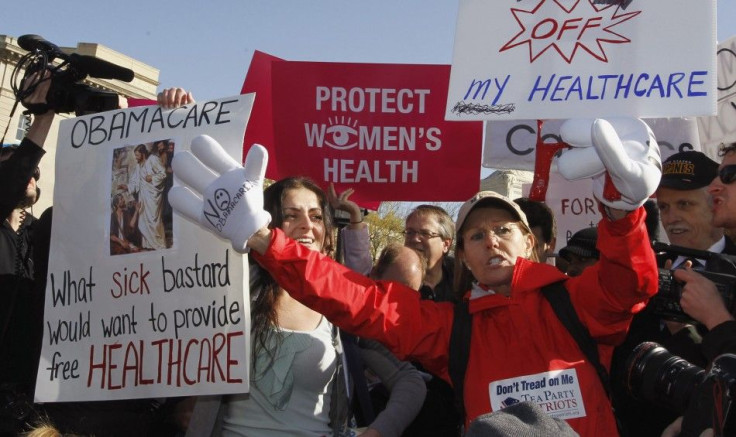Individual Mandate Wouldn't Affect 94% Of Americans: Study

The furor over the Affordable Care Act's mandate that every American have health insurance has reached the Supreme Court, but a new study finds that only a sliver of the U.S. population would have to buy coverage.
An analysis by the nonpartisan Urban Institute tried to project, based on 2011 population levels, the number of people who would be compelled to either buy new insurance or pay a fine. The study's authors found that about 94 percent of the U.S. population, about 250 million people, would keep their current insurance, become eligible for a public insurance plan or be immune to paying a fine.
About a third of the population younger than 65 (elderly Americans are automatically covered by Medicare) would be shielded from a fine for not purchasing insurance. That group includes undocumented immigrants and low-income Americans. The 2020 health care overhaul directs states to set up private insurance marketplaces, but if the cheapest available plan costs more than 8 percent of a family's income, that family isn't subject to a fine.
Around 155 million other Americans already have insurance, most through employers or a family member's employer; a smaller number obtain coverage through a public program such as Medicaid or by purchasing individual plans.
That leaves about 26.3 million people, but 8.1 million of them would be able to enroll in either Medicaid or the Children's Health Insurance Program under expanded eligibility rules set by the legislation. Another 10.9 million would be able to receive subsidies to offset the costs of buying insurance through the state exchanges.
Those who would need to buy insurance and wouldn't get any subsidy number about 7.3 million people, or about 2 percent of the total population, according to the Urban Institute study.
© Copyright IBTimes 2024. All rights reserved.











